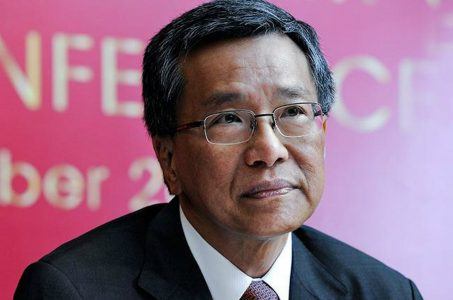FinCEN: Casino Reporting Led to Outing of Criminal Group Financing Hezbollah from Argentina
Posted on: August 17, 2018, 11:30h.
Last updated on: August 17, 2018, 10:31h.
Last month, Argentina’s Financial Services Unit froze assets belonging to the Barakat Clan, a powerful Lebanese crime family with links to the leadership of Hezbollah.

The clan is accused of operating a fundraising network in the Tri-Border Area of Argentina, Brazil, and Paraguay that laundered millions for the radical Lebanese Shi’a group, which has been designated a terrorist organization by the United States and many of its allies.
The Barakat Clan’s leader, Assad Ahmad Barakat, was sanctioned by the US Treasury Department in 2004 and has been listed as a Specially Designated Global Terrorist by Treasury’s Office of Foreign Assets Control.
Global Terror Network
At the 11th Annual Las Vegas Anti-Money Laundering Conference and Expo on Tuesday, director of the US Treasury’s Financial Crimes Enforcement Network (FinCEN) Ken Blanco emphasized the role the Casino Iguazu, in Puerto Iguazu, had played in exposing the money-laundering network.
The case highlights the importance of casinos reporting suspicious transactions, he said.
“Last month, following an information exchange between FinCEN and Argentina’s … Unidad de Informaciὀn Financiera … Argentina took decisive action to freeze assets belonging to a transnational criminal organization linked to Hezbollah and its global terror network,” Blanco told assembled delegates largely from the casino industry.
“Clan Barakat is infamous for its suspected involvement in smuggling, counterfeiting, extortion, drug trafficking, arms trafficking, money laundering, and terrorist financing.
“One of the conduits for these Hezbollah money launderers was a casino in the Tri-Border area of Argentina, so it is clear that casinos are on the forefront of valuable information that FIUs need for both their strategic and operational work.”
Cross-Border Money Laundering
Casino Iguazu, on the Argentinian side of the tri-border area, has weak border controls and experiences around 40,000 transits a week, according Israel’s Meir Amit Intelligence and Terrorism Information Center (MAITIC).
“Given such numbers, authorities cannot control each vehicle without bringing traffic to a halt,” said MAITIC. “Without real-time intelligence, it is virtually impossible for Argentina’s authorities to catch large quantities of undeclared cash and thus prevent the exploitation of the casino, merely a hundred yards beyond Argentina’s customs station, for money laundering purposes.”
Barakat Clan members were able to cross into Argentina from Brazil hundreds of times with large amounts of cash, which they converted into chips and back, but their activity was ultimately spotted and reported.
“I believe casinos are good and important partners that have made significant progress in recent years with respect to anti-money laundering and suspicious activity reports, and, for that, I want to thank you all,” said Blanco.
“The reports your casinos file matter. They are valuable. They make a difference,” he added.
Related News Articles
New York Slots Player Wins $43 Million Steak Dinner
Casinos Offer Alternatives for Those Escaping Holiday Pressures
Genting Group Focused on Japan, Predicts ‘Fierce’ Bidding War
Most Popular
Las Vegas Overstated F1 Race’s Vegas Impact — Report
Vegas Strip Clubs Wrestle in Court Over Animal Names
Most Commented
-
End of the Line for Las Vegas Monorail
— April 5, 2024 — 90 Comments -
Mega Millions Reportedly Mulling Substantial Ticket Price Increase
— April 16, 2024 — 6 Comments -
Long Island Casino Opponents Love New York Licensing Delays
— March 27, 2024 — 5 Comments -
Nearly Abandoned Mall Outside Vegas Soon to Have Only One Tenant
— March 12, 2024 — 5 Comments















